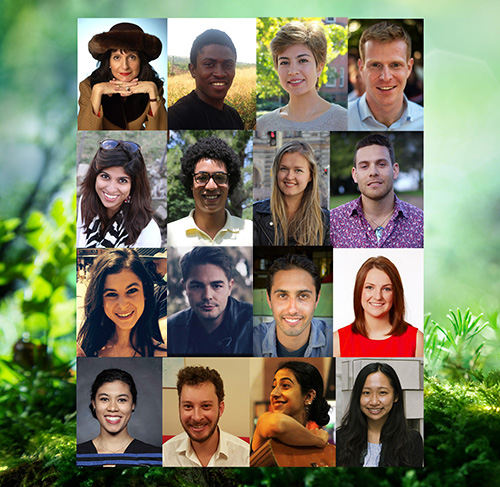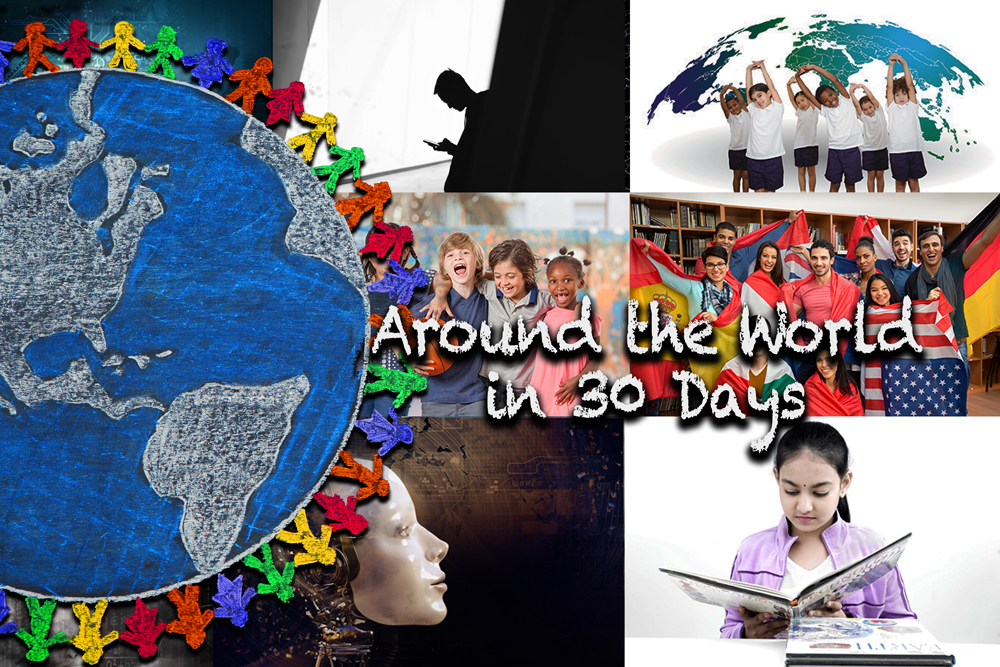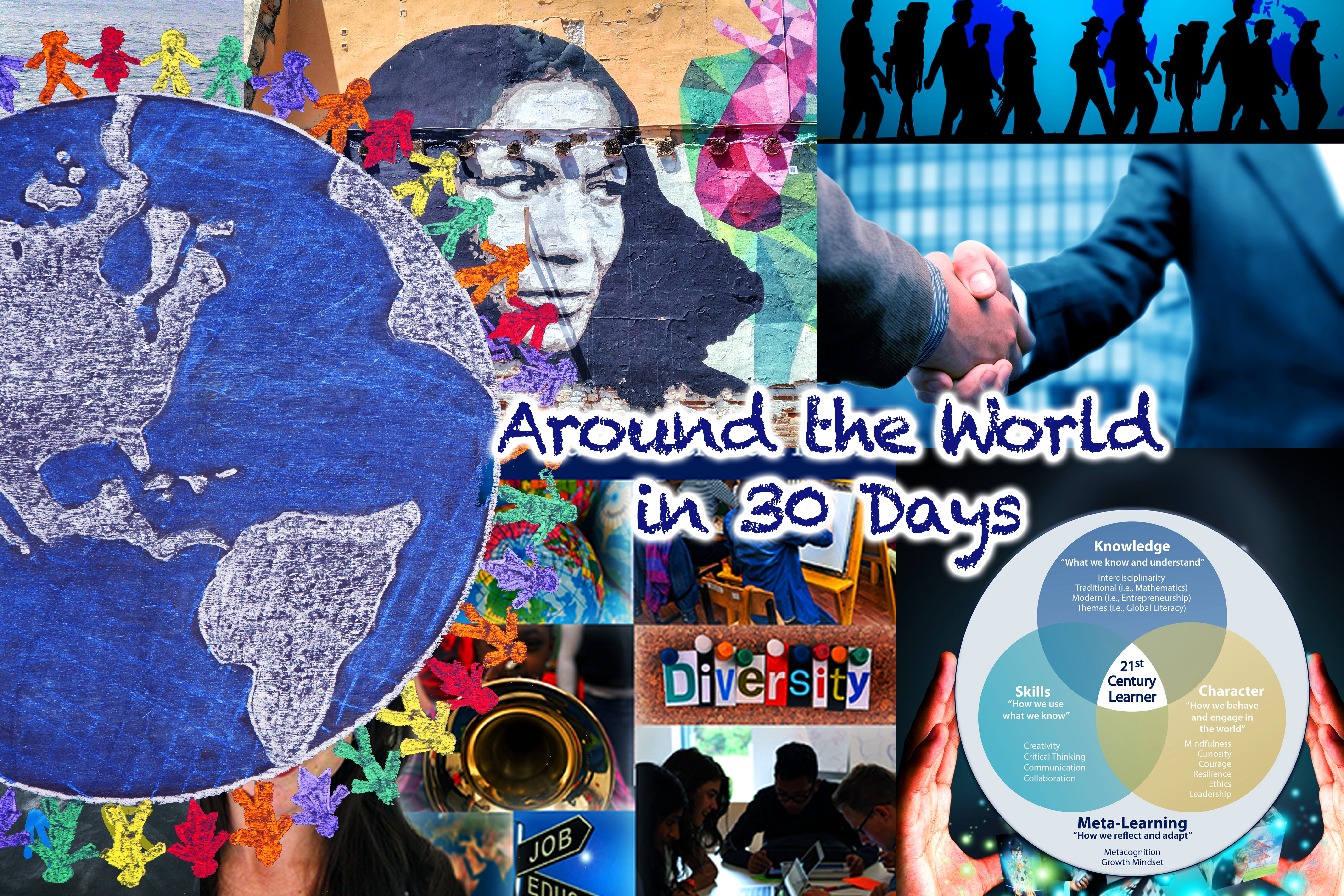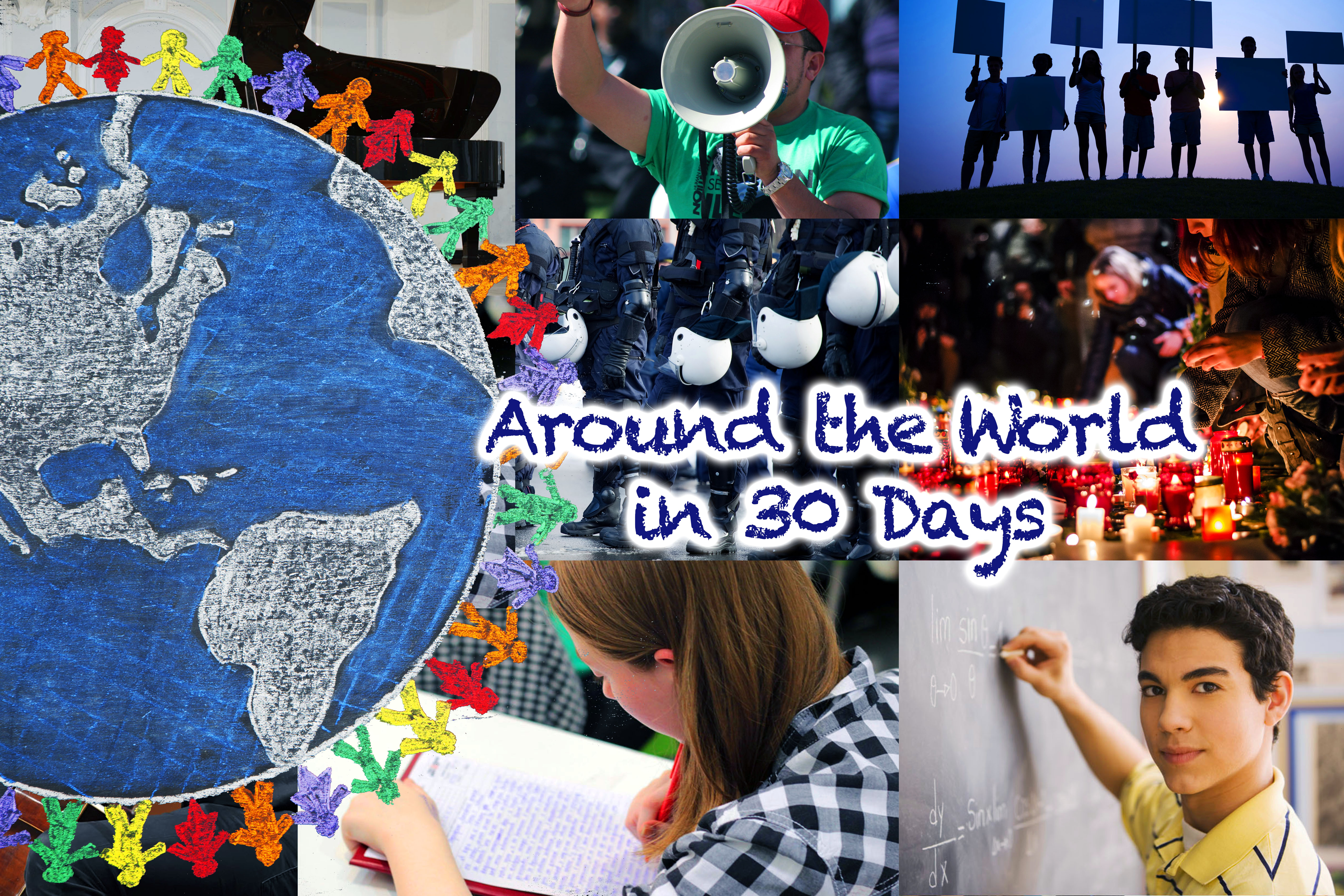Europe has not been shy about putting Big Tech under the microscope. This month, Google hit a new record with a US$5 billion fine for trying to eliminate competition in the search field.
According to TristanHarris, “a handful of people working at a handful of tech companies steer the thoughts of billions of people every day.” And they’re all competing for our attention. Technology and progress in science bring with them transformative advances which offer potential solutions to some of the world’s greatest challenges. It is certainly an incredible time to be alive. At the same time, these technologies present new issues and new challenges for our society. They raise concerns about algorithmic biases, the role of education, the future of work, data privacy, human well-being, and inequality. They challenge us all to stay informed so we are ready to provide an educated opinion of when the good benefits outweigh the bad, or vice versa.
The Millennial Bloggers are based all over the world. They are innovators in entrepreneurship, journalism, education, entertainment, and academic scholarship. This month we ask them to share their perspectives on the big tech debate. Are we approaching Utopia or Dystopia or both?
“We as a society have developed a notion that technology advancements are a great thing, which they are. For example, look at the improvements in medical technology,” writes Leslie Ma. “I believe the majority of us have failed to realize we have become slaves to the tech industry.” Read: A Tech Dystopia: Fiction or Non-Fiction?
“Ordinary citizens need to start engaging in this debate, and feel ownership of it,” writes Bonnie Chiu. “We are seeing this happening with the recent enforcement of General Data Protection Regulations (GDPR) in Europe that puts citizens’ rights at the forefront, but we need more of this happening across the world. Otherwise, very soon, robots will be speaking on our behalf.” Read: How to Save Ourselves from Tech Dystopia.
“I got my first phone in 6th grade; my little brother got his first phone even earlier,” writes Alison Rao. “There are people younger than me who will not have known a time without technology at all, and so it is crucial that those who still remember the differences between technology and lack thereof can help others who don’t know the harm that technology can do to us in the future if we continue to consume at a rate that borders addiction.” Read: Our Technological Dystopian Autobiography.
“Travis Morrison ponders spiders in the snow, memory machines, magician tricks, gyroscopes and maybe most memorably an anonymous invitation in the mail, and it’s all bound together by frenetic rhythms – flirting with intentional irritation, but inevitably lapsing into naked expressions of beauty,” writes James Kernochan. “It’s an album to confront the frustrations of the technotopia while burrowing away into private musical reflection.” Read: Two Roads Diverged in a Yellow Wood.
Top Row: C.M. Rubin, Alusine Barrie, Sajia Darwish, James Kernochan
2nd Row: Kamna Kathuria, Jacob Deleon Navarrete, Reetta Heiskanen, Shay Wright
3rd Row: Isadora Baum, Wilson Carter III, Francisco Hernandez, Erin Farley
Bottom Row: Dominique Alyssa Dryding, Harry Glass, Harmony Siganporia, Bonnie Chiu
Join me and globally renowned thought leaders including Sir Michael Barber (UK), Dr. Michael Block (U.S.), Dr. Leon Botstein (U.S.), Professor Clay Christensen (U.S.), Dr. Linda Darling-Hammond (U.S.), Dr. MadhavChavan (India), Charles Fadel (U.S.), Professor Michael Fullan (Canada), Professor Howard Gardner (U.S.), Professor Andy Hargreaves (U.S.), Professor Yvonne Hellman (The Netherlands), Professor Kristin Helstad (Norway), Jean Hendrickson (U.S.), Professor Rose Hipkins (New Zealand), Professor Cornelia Hoogland (Canada), Honourable Jeff Johnson (Canada), Mme. Chantal Kaufmann (Belgium), Dr. EijaKauppinen (Finland), State Secretary TapioKosunen (Finland), Professor Dominique Lafontaine (Belgium), Professor Hugh Lauder (UK), Lord Ken Macdonald (UK), Professor Geoff Masters (Australia), Professor Barry McGaw (Australia), Shiv Nadar (India), Professor R. Natarajan (India), Dr. Pak Tee Ng (Singapore), Dr. Denise Pope (US), Sridhar Rajagopalan (India), Dr. Diane Ravitch (U.S.), Richard Wilson Riley (U.S.), Sir Ken Robinson (UK), Professor Pasi Sahlberg (Finland), Professor Manabu Sato (Japan), Andreas Schleicher (PISA, OECD), Dr. Anthony Seldon (UK), Dr. David Shaffer (U.S.), Dr. Kirsten Sivesind (Norway), Chancellor Stephen Spahn (U.S.), Yves Theze (LyceeFrancais U.S.), Professor Charles Ungerleider (Canada), Professor Tony Wagner (U.S.), Sir David Watson (UK), Professor Dylan Wiliam (UK), Dr. Mark Wormald (UK), Professor Theo Wubbels (The Netherlands), Professor Michael Young (UK), and Professor Minxuan Zhang (China) as they explore the big picture education questions that all nations face today.
The Global Search for Education Community Page
C. M. Rubin is the author of two widely read online series for which she received a 2011 Upton Sinclair award, “The Global Search for Education” and “How Will We Read?” She is also the author of three bestselling books, including The Real Alice in Wonderland, is the publisher of CMRubinWorld and is a Disruptor Foundation Fellow.
Follow C. M. Rubin on Twitter: www.twitter.com/@cmrubinworld







Recent Comments